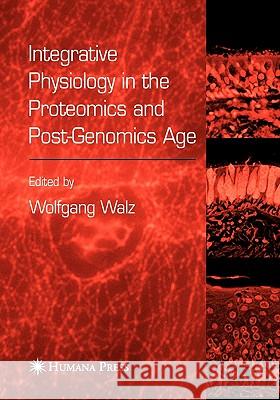Integrative Physiology in the Proteomics and Post-Genomics Age » książka
Integrative Physiology in the Proteomics and Post-Genomics Age
ISBN-13: 9781617374883 / Angielski / Miękka / 2010 / 269 str.
There is a perception in the scientific community that the discipline of Physiology is in crisis, or at least, in a phase of profound transition and change. At the root of the problem is confusion between objectives (the biological questions to be solved) and the methods and technologies to be applied. Traditionally, ever since Claude Bernard s concept of the milieu interieur, Physiology was an integrative science with the prime concern of studying regulatory mechanisms leading to adaptation and homeostasis in the presence of challenges from a dynamic internal and external environment. This study of control mechanisms can be applied on any level of fu- tion whether subcellular, cellular, and organ, but reaches its highest level of complexity with the functioning of the body as a whole and its interaction with the external environment. This involves the determination of the interaction of genetic with environmental factors and the resulting integrated body adaptation. It might seem obvious that in the pursuit of these questions any appropriate combination of techniques on any organizational level could be used. Yet the advent of molecular techniques has resulted in a preoccupation with the problems and challenges inherent in these techniques, sometimes at the expense of the original perspectives and concepts. The many new mechanisms that have been discovered at the molecular level, as well as their economical exploitation, have contributed to a climate of reductionism."











